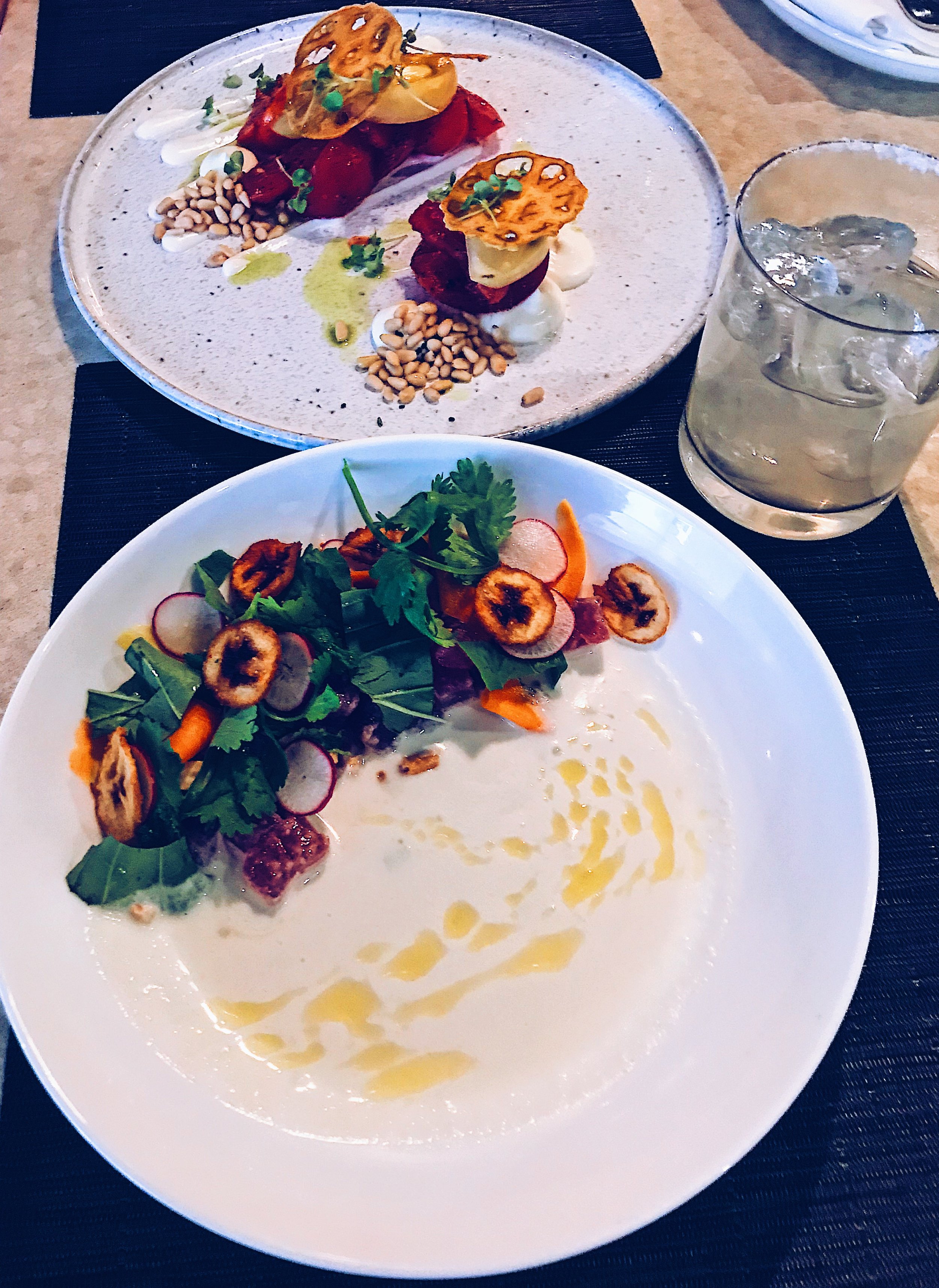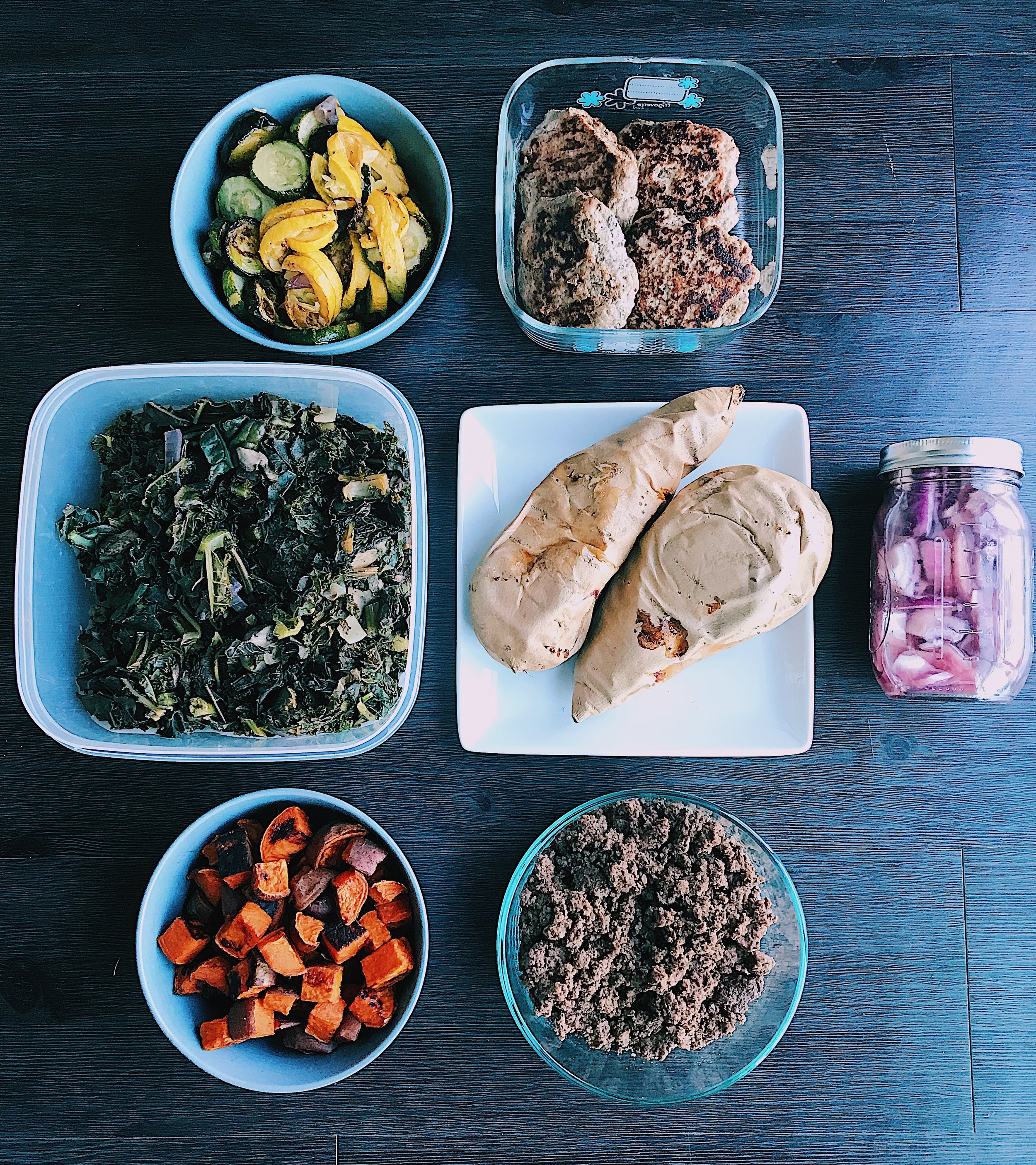I'm Tall, White, Thin, Able-Bodied, and Privileged - Why Was I Still Obsessed with Food?
/When sharing my story about my history with disordered eating and my obsession with food, exercise, and my body, I’ve received comments about the validity of my experience and whether it’s relatable to others.
I've been 15 lbs. lighter and heavier than my weight in this pic, and my obsession with food was the same regardless of the state of my body.
I am white, tall, thin, able-bodied, and young, so what could I have possibly been obsessing over? Shouldn’t I just shut my mouth and be grateful for what I did/do have? These questions initially elicited a knee-jerk reaction of frustration and disappointment, but after giving them some thought, I have been able to see these questions through a different lens.
It’s important to recognize my position of privilege due to the aforementioned qualities and how others do not receive the same benefits, and there are ways in which these privileges manifest that I’m still not aware of.
However, this does negate nor take away from my experience, and it doesn’t for anyone else either. Our relationships to food aren’t just about our bodies, and our experiences are valid simply by virtue of them occurring.
Where It All Began
When looking through the lens of my own experience, my obsession with my body began in response to circumstances many other women can relate to: I learned that my appearance is my most valuable currency, and in order to be lovable, I must look perfect as defined by society’s standards.
Furthermore, in a household of four children within four years and as a middle child who was relatively “easy” and calm, I yearned for attention and accolades. I believed that obtaining perfection (in every way—not just with my body) was the only way to achieve this.
I was 5’8” by the age of 13, so I was deeply insecure about my height. It made me different, and similarly to any teenager, this instantly made me resentful of the trait.
Additionally, as I progressed further into puberty, I looked to my dad and brothers to gauge appropriate portion sizes during mealtimes, and I steadily gained weight.
I didn’t feel any connection to my body at that point in time, so I overate processed foods regularly. Was I unconscious with my choices? Absolutely. Did I demonize specific foods? Not yet.
Fast forward a few months, and I was tall and now heavier than was natural for my frame, and I began to feel myself drifting farther and farther away from the ideal. The last thing I would have categorized myself as was “feminine” according to society’s standards.
Was I technically overweight? No, but I was heavier than felt comfortable to me, and I was certainly too heavy according to others in my immediate circle. And they made it known.
After listening to this unsolicited feedback and observing interactions around me, I slowly started putting the pieces together:
- A leaner body means more attention.
- More attention means an increased likelihood of receiving love, acceptance, and being seen.
- Less food and more exercise leads to a leaner body.
- Food is the barrier to feeling love, acceptance, and the ability to be seen.
- Food is the enemy.
This isn’t true of course, but this concept ruled my life for a decade. I viewed food as the gateway to my self-worth and value in the eyes of others, so it’s no great surprise that it became my obsession.
It was a love/hate relationship, and it was one that I so badly wanted to make peace with.
Obsession at Any Stage
My issues with food and my body started and continued due to feelings of unworthiness, and they didn’t let up for ten years regardless of the state of my body.
It didn't matter if I was 15 lbs. heavier than today at my heaviest or 15 lbs. lighter at my lightest—my obsession remained constant as I ebbed and flowed within those 30 lbs.
When I was leaner, I was obsessed with maintaining my body fat percentage for fear of losing my value as a person. I was fully convinced that my friends and family truly loved me more when I looked that way, and my love of myself followed suit.
When I gained weight, which often occurred when I loosened the reigns and allowed myself to live my life in college, I felt a deep sense of shame about my appearance and the fact that I had “let myself go”. Even during these joyful and fun-filled times, I oscillated between periods of pure joy, panic, and fear of the looming outcome—more fat on my body.
There wasn’t a time when I wasn’t obsessing, and this was irrespective of the state of my body.
The Chase Never Ends
My obsession with food went far beyond my body, and the underlying reasons shifted based on the stage of life I was in, but the pressure to fix “just one more thing” was endless.
While I inhabited the qualities noted above, I was and still am far from the absurd standards of beauty women are held to.
I have cellulite, I’m not “curvy in all the right places”—whatever the fuck that means, I’m flat-chested, I’m taller than many men at 5’10.5”, I’m really pale with freckles, and the list goes on and on.
With the endless list of qualities we’re told to embody simultaneously, as if we come with ala carte options, there is always one more thing for us to obsess over. One more thing to hustle for. One more way to feel as though we’re inadequate.
We see women who are walking around with insanely low levels of body fat and continue to obsess over their meals and exercise routines, because the issue isn’t our bodies themselves—it’s our subscription to the stories we’ve been told about where our value is derived from and other underlying emotional distress we’re often masking (such as my staunch subscription to perfectionism).
Others may include the need for control, binging to numb our emotions and subsequently starving to undo the “damage”, seeking love and attention, lack of self-worth and self-esteem, deflecting from other areas of our lives that are calling for our attention (like hating our job or an unhappy relationship), lack of authenticity in our lives, etc.
Our Bodies Don’t Determine Our Relationships with Food
I have worked with overweight and thin women, all of whom are constantly obsessing over every morsel of food. While their motivations can be different, their relationships with food are very similar.
To assume we know someone else’s story based on their appearance is short-sited, and it furthers the notion that we are defined by the way we look.
Lean women may be labeled as lucky and perfect, despite deep pain they may be masking, and overweight women are often labeled as lazy, despite the care they may show for their bodies.
This contributes to the problem on a larger scale, and it can also be deeply harmful to the individual.
It doesn’t serve us look to our appearance or those of others to determine what someone’s relationship with food “should” look like or assume we know what is true.
When we “should” each other, we miss the opportunity to connect with other women on the deep level we’re all seeking, and we collectively take a step back.
We all have a right to our story, our experiences, and our emotions, simply by virtue of them being our own, and we can take ownership of them while simultaneously recognizing our privilege and seeking to learning about the experiences of women in marginalized bodies.
This is a new-to-me conversation, so I welcome all feedback in an effort to learn more!









